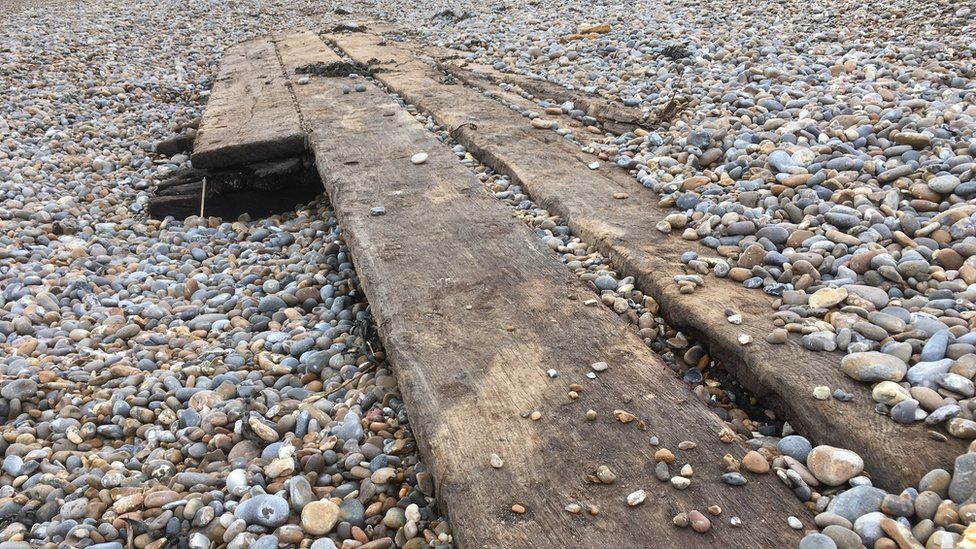
A shipwreck uncovered on the Suffolk coast could be "really, really rare", experts have said.
A wooden boat section was found at Thorpeness beach, but cannot be investigated yet due to Covid-19.
Coastal archaeologists are not allowed to visit it, or a second shipwreck near Southwold, under current restrictions.
They had a "tantalising glimpse" of what might be there by studying the public's photographs, according to discovery officer Andy Sherman.
"It's very exciting to see - hopefully they will still be there in three or four months so that we can do further investigations," he said.
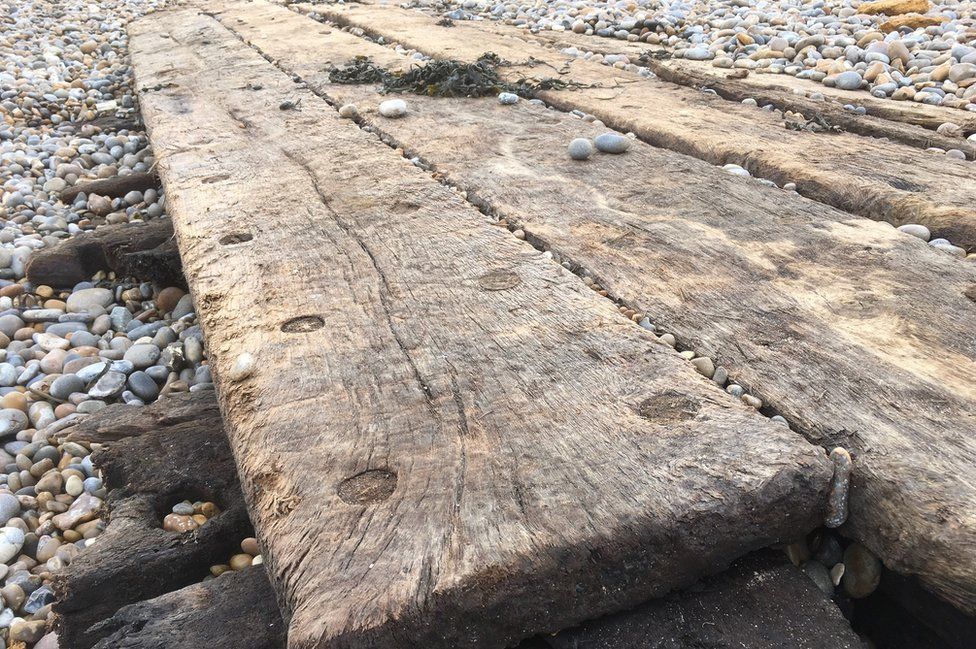
Mr Sherman, from the Coastal and Intertidal Zone Archaeological Network (CITiZAN), said it was "very difficult to successfully identify specific wrecks".
But under current restrictions, the task was even harder, as CITiZAN has had to rely on its volunteers.
He said photographs of the latest finds showed two "carvel-constructed timber boats", a common construction method in the 16th to 19th Centuries.
The wreck at Thorpeness appeared to be held together with wooden "treenails", or pins, a technique that dates from the 13th Century to the 19th Century, Mr Sherman said.
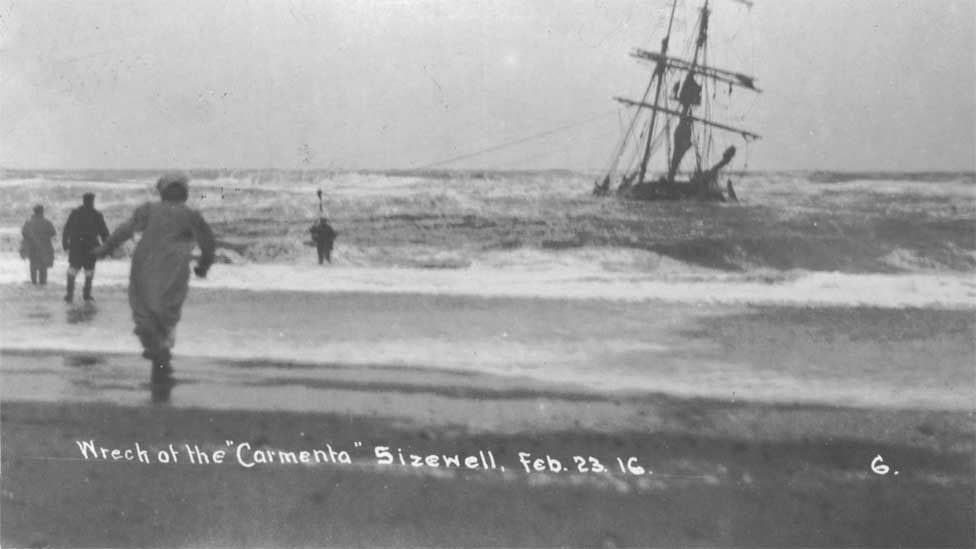
But an unusual construction technique could pinpoint it to a 150-year period from the late 16th Century through to the 17th Century.
"It's difficult to tell from the photographs but this section of wreck appears to have double hull planking, which could be really exciting," he said.
"This makes the vessel slightly more buoyant on one side and is really, really rare [to find]," he said.
"Although the technique is known from historical writings there is only one well-known example in the UK archaeological record."
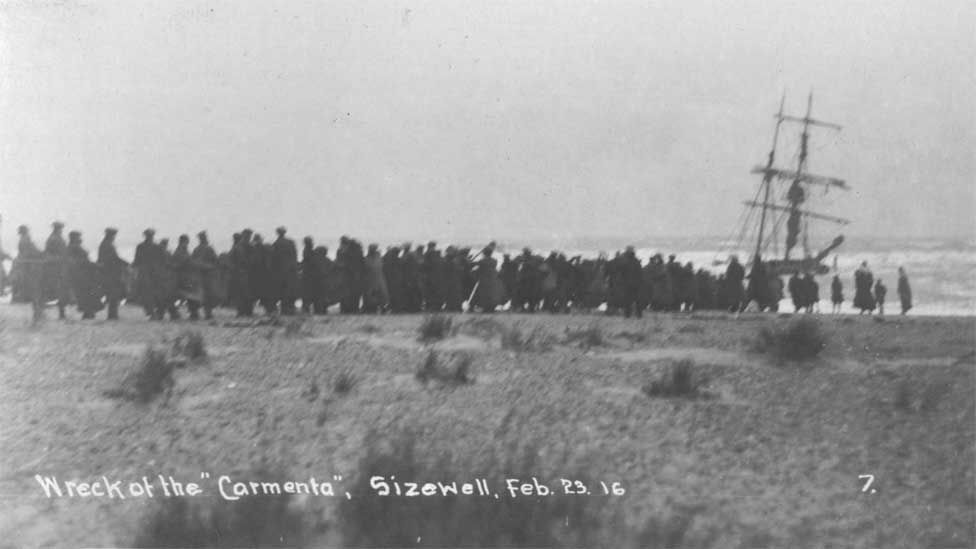
The find has attracted a lot of wider interest, with nearly 300 people attending an online talk about it, organised by Nicholas Mellor from 4D Heritage.
Archaeologist Mark Horton, professor of cultural heritage at the Royal Agricultural University, was one of the experts who took part after examining the photographs.
He believes the piece is more likely to be from an 18th Century cargo vessel called a collier, whose best-known example is Captain Cook's HMS Endeavour.
No colliers have survived so if this was the case "it's more than just old timbers on the beach, it could be a fascinating piece of Suffolk maritime history", the professor said.
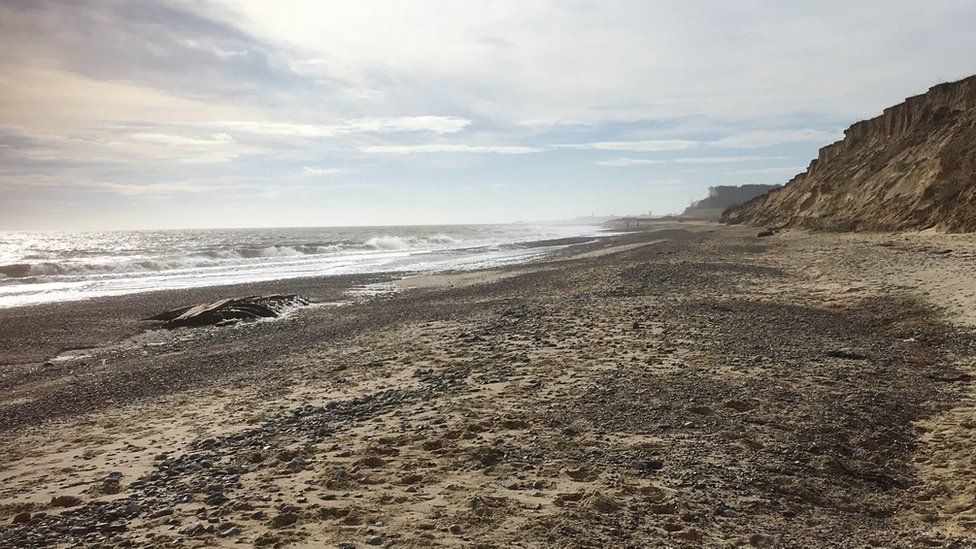
Mike Tupper, managing director of the International Boatbuilding Training College at Lowestoft in Suffolk, has been to Thorpeness to see the wreckage and said "the sheer size of it blew my mind".
He thinks the oak timbers formed the topside of a ship that was 100-150 ft (30m-45m) long.
"If we can identify the species of oak, we'll have a good idea of where it was made because back-in-the day, trees of this size - at least 150 years-old - would not have been moved far as they were so heavy."
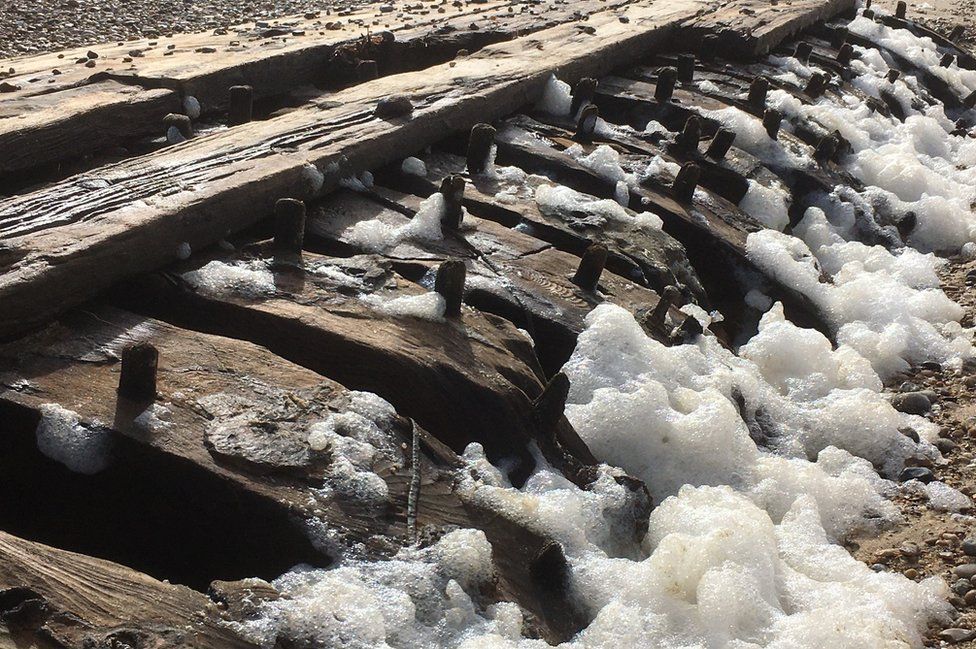
The Covehithe wreck, near Southwold, has not attracted the same level of interest although it appears to have "sheathing" on it - thin metal plates attached to the outside of the hull to reduce the amount of seaweed and barnacles.
The metal used would help date it but "unfortunately we can't tie that down any further [without visiting the site]," Mr Sherman said.
Seeing the photos was "a bit like Christmas Day", he said, "you know, when you're squeezing a present to find out what it is and get an idea of what you might see later".
"We have a tantalising glimpse of information but we can't do anymore at the moment," he added.
"Then if they get covered up again, thankfully we'll still have some record of them."
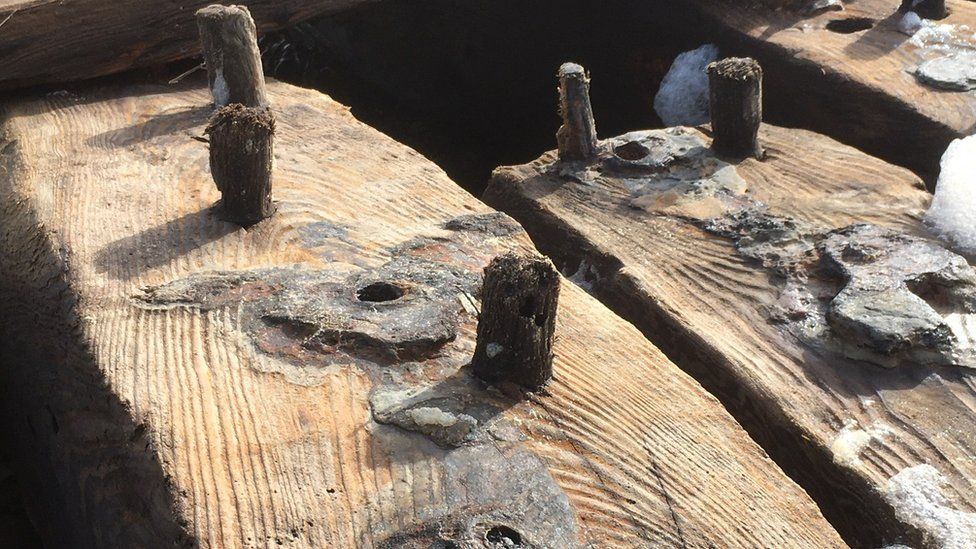

"really" - Google News
March 07, 2021 at 02:59PM
https://ift.tt/2OpFawV
Covid-19: Suffolk 'shipwreck find could be 'really, really rare' - BBC News
"really" - Google News
https://ift.tt/3b3YJ3H
https://ift.tt/35qAk7d
Bagikan Berita Ini














0 Response to "Covid-19: Suffolk 'shipwreck find could be 'really, really rare' - BBC News"
Post a Comment